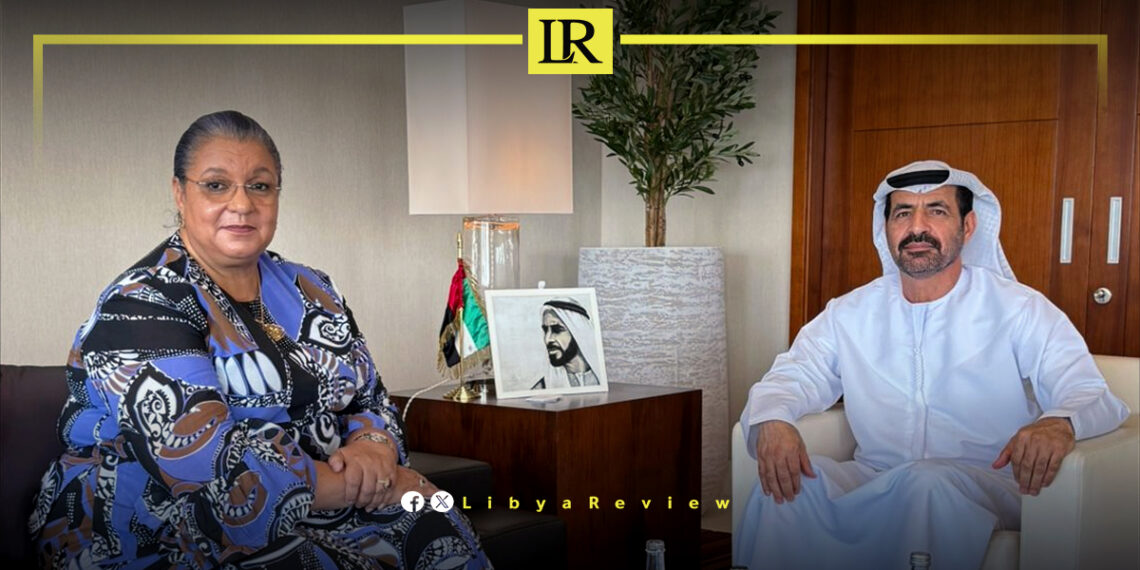Head of the United Nations Support Mission in Libya (UNSMIL), Hanna Serwaa Tetteh, met with the United Arab Emirates’ Assistant Minister for Security and Military Affairs, H.E. Salem Aljaberi, to review the latest political and security developments in Libya.
The meeting, which took place yesterday, focused on the need to preserve stability in Libya and advance the political process. Both officials emphasized the importance of building on the work of the Advisory Committee and ensuring continued progress toward national consensus.
Tetteh and Aljaberi also discussed the significance of unified international support for Libya’s political roadmap. They agreed that a cohesive international voice is crucial to reinforcing efforts aimed at achieving lasting peace and stability in the country.
The talks come at a time of renewed international engagement with the Libyan file, amid ongoing diplomatic efforts to overcome internal divisions and pave the way for national elections.
Libya has been in chaos since a NATO-backed uprising toppled longtime leader Muammar Gaddafi in 2011. The county has for years been split between rival administrations.
Libya’s economy, heavily reliant on oil, has suffered due to the ongoing conflict. The instability has led to fluctuations in oil production and prices, impacting the global oil market and Libya’s economy.
The conflict has led to a significant humanitarian crisis in Libya, with thousands of people killed, and many more displaced. Migrants and refugees using Libya as a transit point to Europe have also faced dire conditions.
The planned elections for December 2021 were delayed due to disagreements over election laws and the eligibility of certain candidates. This delay has raised concerns about the feasibility of a peaceful political transition.
Despite the ceasefire, security remains a significant concern with sporadic fighting and the presence of mercenaries and foreign fighters. The unification of the military and the removal of foreign forces are crucial challenges.


